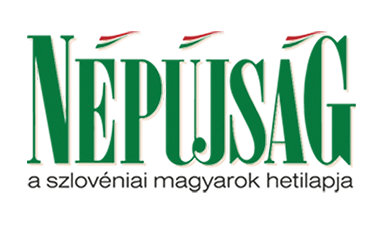 Beliefs and Customs on Saint George's Day
Beliefs and Customs on Saint George's Day
The Day of Joking and Fooling Around

April was originally the second month of the Roman year, but was later placed fourth in the Julian calendar, introduced by Julius Caesar. The Romans dedicated this month to the goddess of love and beauty, Venus. The name of the given month refers to Aphrodite, the Greek equivalent of Venus. According to other sources, April can be connected to the Latin verb aperire (to open, unfold), since at this time the trees sprout buds and the buds open into flowers. In our country, April was once called the month of St. George.
It is still not known exactly how 1st April, the day that symbolises the birth of spring, became April Fools' Day. Some theories suggest that it originated from a Roman holiday known as festa stultorum, which was celebrated on 28th December or New Year's Day in the 12th century. Others believe that it is a remnant of an ancient Celtic custom, when people held rollicking, cheerful spring celebrations at the beginning of April. April Fools' Day, 1st April, is known by many names: in England, All Fools´ Day or April Fool´s Day; in France and Italy, “Poisson d’Avril”/ “Pesce d’Aprile (April Fish); in Germany, “Aprilscherz” and “Huntigowk Day” in Scotland.
According to surviving sources, 1st April was also a day of pranks in the Mura region, when people tricked each other in one way or another. For example, someone would be sent to someone’s house, saying that they had been invited when this was not true. A well-known joke in the region was when they pointed to the sky and shouted: “The stork is flying!” – it should be noted that by this time the storks had not yet returned, so they laughed at the person who fell for the joke. Those who were pranked were mocked: “April fool, May donkey!”
Perhaps one of the oldest jokes was played by the Count of Toulouse, son of King Louis XIV of France, on Marquis de Gramont on the night of 31st March. While the Marquis was sleeping, the Count and his accomplices stole his clothes. They unstitched each piece and sewed them back together to make them tighter. In the morning, when the Marquis wanted to get dressed, he couldn´t fit into his clothes. He was struggling when one of the accomplices opened the door and said: “For God´s sake, Marquis, what´s happened to you? You´re all swollen!” A doctor who was privy to the joke visited the Marquis, examined him, wrote a prescription, and then left. The prescription was taken to the pharmacist, who sent it back, saying he didn´t understand what was requested. He couldn´t understand it as the following Latin text was written on it: “Accipe cisalia et dissue purpunctum”, meaning “Take scissors and cut open your vest!”
April Fools’ Day was also considered a day of prohibition. On this day, no weddings were held, no chickens were nested, and no construction work was started. Furthermore, this day was not considered suitable for sowing grain, although vine crops – pumpkins, cucumbers, peas, beans – were gladly sown with the saying, “let them spread like a rumour.”
Sources:
Halász Albert 1999: Jeles napok, népi ünnepek a Muravidéken. Lendva: Studio Artis Kiadó – Magyar Nemzetiségi Művelődési Intézet.





















